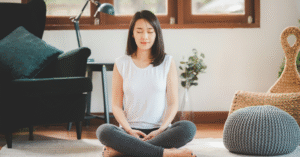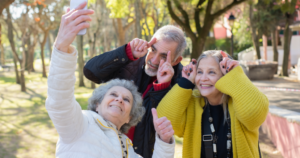We live in a world obsessed with opinions, validation, and the relentless pressure to care—about everything. From social media likes to career status, from family expectations to self-imposed perfection, the weight of “caring too much” can quietly suffocate our happiness.
But here’s the secret: happiness isn’t about doing more, achieving more, or caring more. It’s often about letting go. Letting go of what doesn’t serve you. Letting go of the noise. Letting go of trying to control the uncontrollable.
This is the art of not caring. And it’s not apathy—it’s wisdom. Here are 8 simple ways to master this art and unlock a calmer, more joyful life.
1. Let go of the need to be liked
You could be the kindest, most generous, emotionally intelligent person in the world, and still—still—someone won’t like you.
And that’s okay.
When we tie our self-worth to how others perceive us, we hand over our emotional well-being to people who may not even know us. Real confidence is built when we stop trying to be liked and start focusing on being authentic.
Ask yourself: Am I being true to myself, or am I just trying to win approval? Because you can’t do both.
2. Master the power of saying “no”
So many people live tired, stretched-thin lives because they’re afraid of disappointing others. But here’s the truth: every time you say “yes” to something you don’t want, you say “no” to your peace.
The art of not caring is about setting boundaries—not out of selfishness, but self-respect. You don’t need to explain yourself every time you decline an invitation, a task, or a conversation.
Your time, energy, and mental space are yours to protect. Learn to say “no” with clarity and calm.
3. Stop chasing perfection
Perfection is the enemy of peace.
Whether it’s your body, your parenting, your job performance, or your social media presence—trying to be flawless is like running on a treadmill with no stop button.
Real joy is found in embracing the messy middle. When you care less about being perfect and more about being present, you unlock a more grounded kind of happiness.
Progress over perfection. Always.
4. Detach from your ego
This might be the most important shift of all—and it’s at the heart of Buddhist wisdom.
Most of the things we suffer from—comparison, insecurity, anger, fear—stem from our ego’s need to control, dominate, or be seen. But what if you could live with maximum impact and minimum ego?
Detaching from ego isn’t about giving up. It’s about showing up differently—more consciously, more compassionately, and with far less emotional drama.
5. Care less about what doesn’t matter (and more about what does)
There’s a difference between not caring and not caring about the wrong things.
Not caring doesn’t mean apathy. It means discernment. It means choosing what to invest your energy in.
You don’t have to care about every trending topic, every comment, every piece of unsolicited advice. Instead, care deeply about your health. Your family. Your creativity. Your values.
Not caring frees up your energy to care about the things that actually matter. And that’s powerful.
6. Let go of trying to control people or outcomes
One of the sneakiest forms of stress comes from trying to control what isn’t ours to control—people’s opinions, the future, how others behave, or how life unfolds.
But here’s a liberating truth: you are responsible for your actions, not for how they’re received.
Let go of micromanaging outcomes. Say what needs to be said, do what needs to be done—and then release. There’s real peace in doing your best and letting the rest unfold.
7. Practice emotional detachment in conversations
You’re allowed to listen without reacting. You’re allowed to hear criticism without absorbing it. You’re allowed to witness someone else’s bad mood without making it your responsibility.
Emotional detachment isn’t coldness—it’s maturity. It’s the ability to be present without being entangled.
So next time someone tries to bait you, or dump their emotional mess into your lap, remember: you can respond calmly without carrying it with you. That’s what emotional freedom looks like.
8. Remember that peace is a decision
At the end of the day, happiness isn’t something that happens to you. It’s something you choose.
You can choose to care less about the petty, the shallow, and the performative. You can choose to care more about your well-being, your growth, and your joy.
Peace isn’t a destination—it’s a practice. And like all art forms, the more you practice the art of not caring, the more natural it becomes.
Final thoughts: The most freeing decision you’ll ever make
If there’s one thing I’ve learned over the past decade, it’s this: caring less about the wrong things will change your life.
It’s not about being detached from the world—it’s about being rooted in what matters.
So next time you feel overwhelmed, judged, or pressured—pause. Take a breath. And remind yourself: You don’t have to care about everything.
That’s not indifference. That’s wisdom. And it’s the beginning of a happier life.















